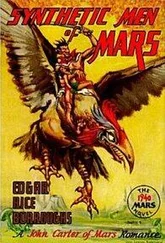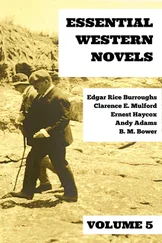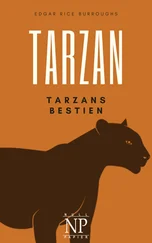Edgar Burroughs - Land of Terror
Здесь есть возможность читать онлайн «Edgar Burroughs - Land of Terror» весь текст электронной книги совершенно бесплатно (целиком полную версию без сокращений). В некоторых случаях можно слушать аудио, скачать через торрент в формате fb2 и присутствует краткое содержание. Жанр: Фантастика и фэнтези, sq. Описание произведения, (предисловие) а так же отзывы посетителей доступны на портале библиотеки ЛибКат.
- Название:Land of Terror
- Автор:
- Жанр:
- Год:неизвестен
- ISBN:нет данных
- Рейтинг книги:4 / 5. Голосов: 1
-
Избранное:Добавить в избранное
- Отзывы:
-
Ваша оценка:
- 80
- 1
- 2
- 3
- 4
- 5
Land of Terror: краткое содержание, описание и аннотация
Предлагаем к чтению аннотацию, описание, краткое содержание или предисловие (зависит от того, что написал сам автор книги «Land of Terror»). Если вы не нашли необходимую информацию о книге — напишите в комментариях, мы постараемся отыскать её.
Land of Terror — читать онлайн бесплатно полную книгу (весь текст) целиком
Ниже представлен текст книги, разбитый по страницам. Система сохранения места последней прочитанной страницы, позволяет с удобством читать онлайн бесплатно книгу «Land of Terror», без необходимости каждый раз заново искать на чём Вы остановились. Поставьте закладку, и сможете в любой момент перейти на страницу, на которой закончили чтение.
Интервал:
Закладка:
Thus equipped, I returned to the pool. Here I fastened one end of the cord securely to the butt of an arrow and tied the other end around my right wrist; then I stepped to the end of the pool and fitted my arrow to the bow.
Every eye was upon me now as I stepped to the edge of the pool. Milling around in the center of the pool, leaping out of the water, were literally hundreds and hundreds of fish; but none of them approached within spear length of the shore.
I coiled the slack of the rope carefully at my feet, raised the bow and drew the arrow back its full length. I was very nervous, and well I might have been, for I had never tried this thing before; and I did not know if the arrow could carry true with the weight of the rope trailing behind it, and my life depended upon success.
I took careful aim at a spot where the fish were thickest. The bow twanged and the arrow sped straight for its mark. A fish jumped into the air and sounded. The rope payed out rapidly. I braced my feet and prepared for the shock; and when it came I was almost jerked into the pool, but I managed to keep my footing.
I let the fish play for awhile without endeavoring to draw him in, for I was none too sure of the strength of my line, even though it had withstood the first great shock. I wanted to tire him, and every time that there was a little slack in the rope I pulled it in. Finally the struggling ceased, and the fish floated to the surface, belly up. I pulled it ashore and handed it to Ro-Tai, who immediately demanded that I make bows and arrows for every warrior of the tribe. Right there we ran into a snag. There was no growth on Ruva suitable for making bows. The result was that I was kept busy shooting fish.
Ro-Tai had to admit that I had taught them something, and his attitude toward me relaxed a little; but U-Val was still pretty sore at me. He wanted me as his slave, and he wanted all the credit for what I had done. Ul-Van told me that U-Val was very unpopular and that I was fortunate in not having him for a master.
The fish that I caught they cleaned and smoked, and when they thought they had a sufficient supply Ro-Tai insisted that I show them how to build a canoe that would travel through the water without paddling.
Immediately I was faced by an insurmountable obstacle. No trees suitable for canoe building grew upon Ruva or any of the other floating islands. All of their canoes had been built upon the mainland where the proper wood could be found. To build a canoe was a terrific undertaking, necessitating an expedition in which some twenty or thirty men were often absent from Ruva for a hundred sleeps or more.
The canoes would be roughly hewn on the mainland and then towed to Ruva, where the long and arduous job of finishing was completed.
These canoes remained in families for generations. Ul-Van told me that his had been in his family for ten generations, at least. They are passed on from the father to the eldest son.
As the women and children seldom leave the islands, only enough canoes are needed to carry the men. A new canoe is built only when the number of men in the tribe exceeds the carrying capacity of the canoes they have; and this, Ul-Van told me, seldom occurs more than a couple of times during the lifetime of a man, as the casualties among the warriors just about balance the birth-rate of males.
Chapter XXIV
I SHALL not bore you with a detailed description of my attempts to convert one of their canoes into a sailboat. I discovered, after considerable experimenting, that I could harden the wood of the native trees over a bed of hot coals; and, with this make-shift material, I constructed a keel and an outrigger. My only tools were some large shells with sharp edges, a stone knife, a stone chisel, and a hammer of stone. Fortunately for me, the wood was very soft and I worked it into shape before hardening it. I made the keel with a broad flange at the top and fastened it to the bottom of the canoe with fire-hardened, wooden pegs which I knew would expand when wet. For my mast, I spliced length of bamboo to the proper height and then bound three of these together with grass cord. The sail was perhaps the most difficult problem; but I solved it by building a primitive loom and teaching a couple of the women how to weave, using a long, tough grass.
While I was working on the canoe, I became pretty well acquainted with the members of the tribe and their customs. There were about forty families on this island, averaging about four members to the family. There were also twenty-five or thirty slaves-men and women from the white races of the mainland. These slaves attended to practically all of the manual labor; but their life was not a difficult one, and, for the most part, they were well treated.
The men are monogamous and very proud of their bloodline. Under no circumstances will they mate with a white, as they consider the white race far inferior to theirs. I could never quite accustom myself to this reversal of the status of the two races from what I had always been accustomed to; but it really was not as difficult as it might appear, for I must admit that the blacks treated us with far greater toleration here than our dark-skinned races are accorded on the outer crust. Perhaps I was getting a lesson in true democracy.
The canoe upon which I had been working had been drawn up on the seashore about half a mile from the village. Usually, there were a number of villagers hanging around watching me; and Ul-Van was always with me, having been detailed by Ro-Tai to keep a watch on me and prevent me from escaping.
Once, while Ul-Van and I were alone, I saw a canoe approaching in the distance, and called Ul-Van's attention to it. At first he couldn't see it; but when it came closer, and he could recognize it as a canoe, he showed considerable excitement.
"They are probably Ko-vans," he said. "It is a raiding party."
"There are three more canoes coming into sight now behind the first one," I told him.
"That is bad," said Ul-Van. "We must return to the village at once and warn Ro-Tai."
When Ul-Van had reported to Ro-Tai, the latter sent boys to the fishing pool and to other parts of the island where he knew his warriors to be; and soon all were congregated in the village.
The women and children were sent into the huts; the men stood about nervously, an unorganized crowd presenting a fine target for the spears of the enemy.
"You are not going to remain here, are you?" I asked Ro-Tai.
"This is our village. We shall remain here and defend it," he replied.
"Why don't you go out and meet them?" I asked. "You could take them by surprise. Send a scout out to see what trail they are taking and then hide your warriors on either side of it; then when the Ko-vans walk into your trap, you can fall upon them in force from both sides. They will be surprised and disorganized, and those whom you do not kill will run back to their canoes as fast as they can go. It is not necessary for you to let them reach your village at all."
"All my life, I have fought when raiders came," replied Ro-Tai with dignity; "and I, and my father, and his father before him, have always held the warriors in the village to await attack."
"That doesn't make it right," I said. "As a matter of fact, you have always been doing it in the wrong way. If you'll let me have ten men, I'll stop those Ko-Vans before they come anywhere near your village."
"I believe him," said one of the principal men of the village. "He has not deceived us yet."
"His plan is a good one," said Ul-Van.
"Very well," said Ro-Tai. "Take ten men and go and see if you can stop the Ko-vans. The rest of us will remain here to fight with them, if you fail."
"I shall not fail," I said; then I selected Ul-Van and nine other men, and together we started back toward the ocean. I sent one man ahead to reconnoiter, with orders to report back to me as soon as he had discovered what trail the Kovans took after they landed.
Читать дальшеИнтервал:
Закладка:
Похожие книги на «Land of Terror»
Представляем Вашему вниманию похожие книги на «Land of Terror» списком для выбора. Мы отобрали схожую по названию и смыслу литературу в надежде предоставить читателям больше вариантов отыскать новые, интересные, ещё непрочитанные произведения.
Обсуждение, отзывы о книге «Land of Terror» и просто собственные мнения читателей. Оставьте ваши комментарии, напишите, что Вы думаете о произведении, его смысле или главных героях. Укажите что конкретно понравилось, а что нет, и почему Вы так считаете.








